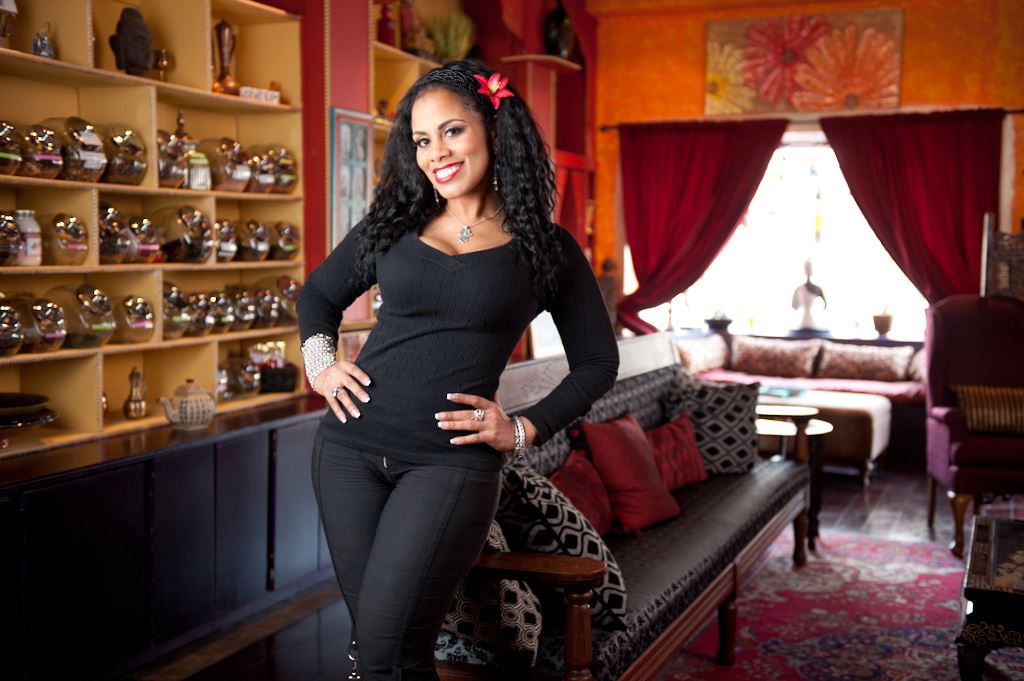As the summer begins to wind down, Dr. Sunyatta Amen, a self-proclaimed witch and founder of Calabash Tea, admits she is looking forward to the Fall.
Halloween is a time of year when parents usually allow their children to overindulge in an array of sugary delights. Still, even Dr. Amen, who is a fan of the annual holiday, is urging parents to pay attention to one particular sweet treat—soda.
During a recent visit to The Karen Hunter Show, Dr. Amen revealed how harmful sodas can be.
“Some of the drinks that I think we see, we may have grown up with—Fanta, Fresca, Mountain Dew, even the Powerades—I see the kids drinking that a lot: Gatorade, Squirt. Remember Squirt? Sundrop? Sunkist Pineapple—those flavors—are things that are actually outlawed. They’re banned in many European countries by the [European Union.] These things contain brominated vegetable oil, believe it or not. I know that sounds crazy; that oil is in there,” she shares.
Dr. Amen reveals that BVO, an additive which is also a flame retardant, is used to emulsify citrus flavor in many of our best-loved fizzy drinks. Citrus is not only limited to lemon and lime flavors.
Dr. Amen explained that studies have shown that “grape flavored, other kinds of tartness in a drink” have been proven to cause neurological problems with your nervous system, skin and reproductive organs because it can build up in the body. “So the liver sees this substance when it comes in, it’s like, “Hmm, I don’t know what to do. I don’t even understand what this is. And so just like somebody gives you a present and you’re like, I don’t know what to do with it.”
Dr. Amen continues, “You just tuck it in the closet. You put it somewhere else for a minute. You may not want to put it on the curve because they might see that you threw it away or whatever. Re-gifting. The body has no re-gifting mechanism. It just stores it. And then these become problems that build up over time. And, of course, because you may be drinking, even if you only have one of these a week or two a week, that becomes an issue.”
According to Statista, during the 2022 Halloween season, consumers in the United States spent about 3.1 billion U.S. dollars on candy, a slight increase compared to 2021 and exceeding pre-pandemic levels. Sales have risen for the first time for the second consecutive year.
“Dr. Pepper […] It’s banned in Austria, Germany,and Sweden. And there are other places where it’s extremely limited with regard to the EU —and that’s because of phosphoric acid, which can lead to kidney damage and osteoporosis,” says Dr. Amen. “And then, if we couple that with diet, you’re getting a layer on top of this artificial sweetener, which is already going to damage your bones, going to weaken your immune system, all kinds of other stuff’s going to happen.”
If these sweetened beverages are banned overseas, then why are they not in the U.S.?
“Sour colors and dyes are also an issue. These are things that are allowed in the United States that you cannot get in certain other places. Because here’s what I figured out in doing this research [on] additives. My hypothesis is that the U.S. regulators—they’re focused on probability, like “We’ll see.” Whereas the EU, for example, considers possibility this is a possibility as opposed to what is the probability. These are two different approaches. And because of that, the FDA and the EPA will not necessarily wait until there is empirical data to say, “This thing is safe.” Instead, they say, “We’ll go ahead. And then if it’s not safe, then we’ll take it off the market.”
Is it time for the U.S. to ban soda?
About Dr. Sunyatta Amen
Tea-EO and Head Witch in Charge, Sunyatta AmenBorn to Cuban, Syrian-Jamaican and Native American parents who owned health food stores in Harlem, Sunyatta Amen has always been interested in using food and beverage to help other heal. Now, she has used her years of research to start Calabash, the highly-acclaimed tea bar based in Washington, D.C. For more than three decades, the culture behind cuisine has been Sunyatta’s passion and she has been a highly sought-after authority on wellness and indigenous foodways.Her eponymous radio show ran Pacifica Networks for 16 years and has since transitioned to TV host and is a frequent correspondent for the Karen Hunter Show, NPR, MSNBC, CNN, Pacifica, ABC, and The Smithsonian Channel. She has been spotlighted by The Wall Street Journal, The Washington Post, Discovery Channel, Thrillist, Eater, Marie Claire and Essence.








